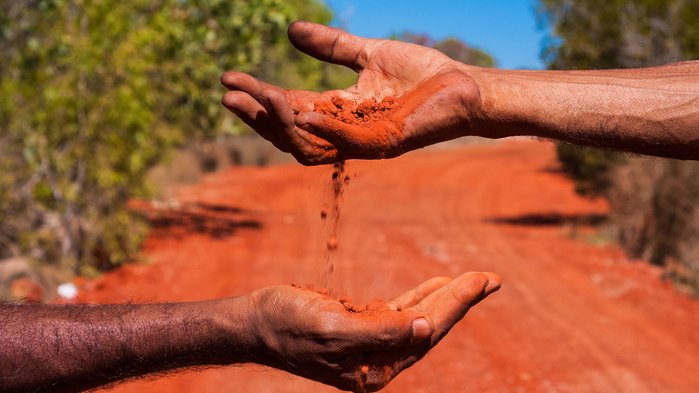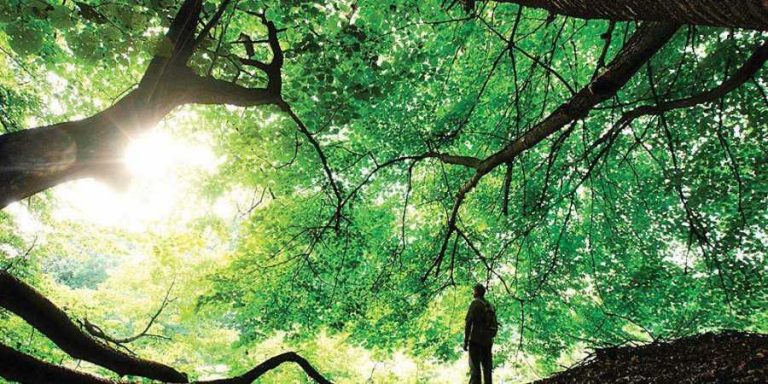It all started with the land or maybe with the oceans. It all started long before our culture came to this place. The mountains were raised up the rivers were laid down, the grasslands, the forests, the flowering plants, the diversity of animal life, they all started long before we came on the scene.
And when we did, we did it with a bang. Not just figuratively but literally. To put it crudely we adopted a bushranger mentality.
We did it with such conviction that we determined to reshape the land in our own image. To do it we had to dismiss as worthless or at least deem the land to be of less consequence than that which was here before we set foot on this so called new found territory.
The story has been unravelling for some years. Before our eyes we are witnessing what happens when we ignore basic fundamental ecological principles. By superimposing on the land human-centric thinking devoid of respect for the foundation stones or geological ancestry, we cause disturbances that have repercussions beyond what we thought possible – but not what our indigenous cousins would tell us would be highly probable.
The Murray-Darling River tragedy – along with others – started long before this latest episode that has grabbed the attention of politicians and the media. It will no doubt go off the boil, but the underlying issues will remain until the rivers are allowed to function as life sustaining ecological entities.
In terms of human life times, at 60 million years of age, they have been in existence for at least 2,400,000 human generations. For more: Geology, Murray-Darling Basin
In The modern bushranger: feudal overlord of a dying river, (SMH, 25 January 2019) Elizabeth Farrelly says: “Talk about killing your darlings … I’m fascinated that a nation so blessed by nature should treat her so badly, like the man who marries the loveliest girl in town then demonstrates his prowess by beating her to a pulp. This colonial attitude of triumph-by-domination is everywhere – most dramatically, just now, in the Darling River fish massacre.”
Farrelly goes on to say: “The fish deaths, and our apparent determination to bring the mighty Darling to its knees, is not an isolated instance of greed, corruption or incompetence. It’s not one rotten apple. It is an entire attitudinal orchard – systemic, cultural and enduring.”
To read the full story click on the link: The modern bushranger
Our challenge is to rekindle our connections with the land, to think like the earthlings we actually are. We offer these words from Mr Rigney in support of why we need to cease ignoring our geological heritage —
“Well, the environmental goals are – you know, I don’t think you need to be Blind Freddy to see that. We want to reset these biodiversities and the ecologies in our country. We want to see our fish spawning as they once were, our animals coming back down to drink. Fresh quality water out of the Coorong, not this super saline stuff that we’re living in today’s environment. It’s slowly dying. You can smell the impact of what’s happening in the Coorong and people in the city don’t get to see that. They live within their four walls and not seeing what degradation is happening to country. What happens to country happens to you.

To me as a person, as a Ngarrindjeri, I am that tree, I am that rock, I am that plant. I cannot be separated from it. It is me and I am it. This is the difference in our societies; we don’t see what others are seeing. “
(Mr R.Beasley SC, Senior Counsel Assisting called on a Mr Rigney as witness on day 17 in the matter of the Murray-Darling Basin Royal Commission before Mr B.Walker SC, Royal Commissioner. Adelaide, 2 August 2018).
Attempting to manage or should we say massage nature to fit an economic model has been shown to contain so many flaws that as Mr Rigney says even Bind Freddy can see them. Indigenous ways of knowing can contribute enormously to our collective knowledge store – but only if we honour what in fact is our common heritage, our geological heritage. On a geological time scale, the land belongs to no one, we all belong to the land. Recognition of this reality would go a long way to reconciling each of us with our common ancestral mother – the earth.
Only then will we move beyond the bushranger mentality, to stand with Mr Rigney in a spirit of reconciliation. What indigenous people have long known to be an eternal truth, is a universal truth, we and the land are one – how we treat the land (and the river/s) ends up being how we treat ourselves. A proverb found in the New Testament of the Bible, Galatians 6:7: says it rather succinctly: “You reap what you sow.”
Murray-Darling Basin Royal Commission submission transcript: at this link.



